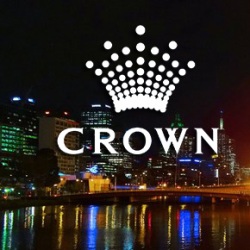The Philippines Casino Market is Booming

The Philippines casino market is in danger of saturation as a result of over-investment by casino companies looking to cash in on the booming Asian gaming hub. Further hazards also lurk ahead after the government privatizes the 13 casinos currently run by state regulator, PAGCOR, next year, with Enrique Razon Jr, chairman of Bloomberry Resorts, warning:
“Cannibalization – it is always possible, over investment. With liquidity nowadays and [low] interest rates, people are making investments that 10 years ago they wouldn’t even think about, those kinds of returns.”
In the meantime, the country’s casino market continues to boom, making it even more imperative that the government implements effective regulatory controls to protect the lucrative industry ahead of its overhaul in 2018.
Casino Market
The Philippines is the third fastest growing gambling hubs in Asia, behind Macau and Singapore, with millions of tourists visiting the country’s many attractions each year, including its resorts and casinos. One such popular tourist attraction is Entertainment City, a 100-hectare area in the same vein as places such as Macau and Las Vegas, although there are around 46 casinos spread out across the whole of the country, as well as a number of other major casino projects currently underway.
Booming Revenues
Last year, the Philippine’s casino market was worth $2.3 billion. In Q2 of 2017, the market subsequently soared by 14.5% to $759.4 million, meaning that for the first half of the year revenues are currently up by 15.7% compared to the same period of time a year earlier. This impressive trend has also continued into Q3, with business booming by 27% in August, and looking ahead to Q4, a Morgan Stanley forecast says the country’s numerous casinos, and especially its four integrated resorts, should benefit greatly from “stronger seasonality, ramp up of Okada [Manila resort], and normalization of VIP luck.”
Privatizing Industry
In 2008, the Philippines transformed its casino industry from one dominated by state run monopoly PAGCOR, to one in which private companies both home and abroad could apply for official gaming licenses. Currently, 13 of the country’s more than forty casinos are owned by PAGCOR, but the government has said that it would begin privatizing its casino assets in 2018.
Already, several casino moguls have expressed interest in acquiring some of PAGCOR’s gaming venues, with the sale of state assets expected to raise almost $10 billion for the government. Nevertheless, the government can also expect to earn around half a billion dollars less revenues each year, unless it sets up just the right taxation and gaming fees to make up for the potential shortfall.
Taxation
Currently no tax is applied to any of the state owned casinos, except for a small franchise tax of just 5%. Therefore, the government stands to generate significant tax revenues from its privatization program, that should offset any losses accrued from selling off its assets. Nevertheless, the Philippines continues to suffer from wide spread corruption, and structures should be put in place to ensure PAGCOR does not become susceptible to the same malady that already exists in two other major state regulators, namely The Bureau of Internal Revenue (BIR) and Bureau of Customs (BOC).
Commenting upon the pressing need to avoid such a development, Rey Gamboa from philstar.com warned that sufficient safeguards should be put in place while crafting new legislation. Elaborating further, he stated:
“Also critical is the screening and selection process to be implemented in choosing the key personnel of the agency. Once the crooked ones are in place, it would undermine the credibility of the agency and getting rid of them is a big challenge. Just look at the situation at the BIR and the BOC.”
Regulation
Separating PAGCOR’s regulatory responsibilities from its casino operation should hopefully help reduce corruption in the organization, and help it fully get behind the government’s campaign to clamp down on money laundering and terrorist funding in the Philippines. In addition, PAGCOR may subsequently become more proactive in policing the country’s gambling industry, as well as crafting further regulation to develop the industry, such as permitting online gambling.
In conclusion, the Philippines looks set to strengthen its casino market, as long as the government focuses strongly on implementing its build a better brand policy through well-though out regulation. This in turn will help attract investment into the country, as well as draw in millions of additional tourists each year.








